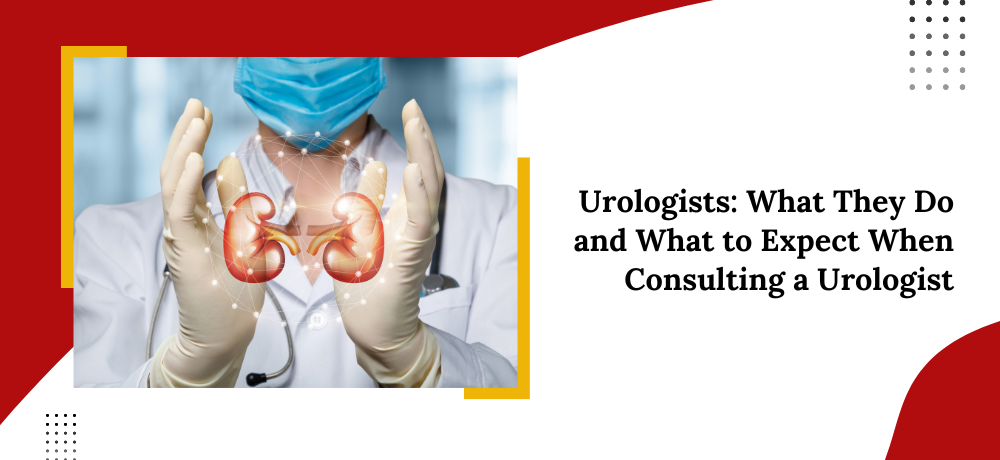Urologists: What They Do and What to Expect When Consulting a Urologist

Facing urological concerns can be intimidating, but understanding the role of a urologist and what to expect during a consultation can ease your worries. In this blog, we will introduce you to the world of urologists, shed light on their responsibilities, and guide you on what to expect when you consult one.
Comprehensive Evaluation:
When you consult a urologist, your initial visit will typically involve a detailed assessment of your medical history and an in-depth discussion of your current symptoms or concerns. Urologists are skilled in eliciting specific information that may be relevant to urinary and reproductive health, such as voiding habits, pain, and changes in urinary patterns. They will often perform a physical examination, which may include genital and rectal examinations for men and pelvic examinations for women. Diagnostic tests, such as blood work, imaging studies, and urinalysis, might be ordered to aid in diagnosis. This thorough evaluation is crucial to establishing an accurate diagnosis and developing an individualized treatment plan.
Specialized Care for Men and Women:
Urologists are trained to treat both men and women, but they possess specialized knowledge of conditions that affect each gender. For men, this includes addressing issues related to the male reproductive system, such as prostate problems, testicular conditions, and erectile dysfunction. Women may seek urologists for concerns like urinary incontinence, interstitial cystitis, pelvic organ prolapse, and recurrent urinary tract infections. Urologists understand the unique anatomical and physiological differences between men and women and tailor their treatment approaches accordingly.
Surgical Expertise:
Urologists are often considered surgical specialists. They are proficient in various surgical techniques, both minimally invasive and open procedures, to address a wide range of urological conditions. Common urological surgeries include transurethral resection of the prostate (TURP) for benign prostatic hyperplasia (BPH), kidney stone removal procedures, such as lithotripsy or ureteroscopy, and cystectomy for bladder cancer. Urologists utilize their surgical expertise to alleviate symptoms, remove obstructions, and treat underlying conditions effectively.
Cancer Diagnosis and Treatment:
Urologists play a crucial role in the diagnosis and management of urological cancers. They are often the first point of contact for patients with conditions such as bladder cancer, kidney cancer, and testicular cancer. Urologists may conduct biopsies to confirm the presence of cancer and then develop a comprehensive treatment plan, which could involve surgery, radiation therapy, chemotherapy, or immunotherapy. They work closely with oncologists to provide coordinated care, ensuring that the best treatment options are offered to the patient.
Holistic Approach to Health:
Urologists understand the interconnected nature of the body's systems and collaborate with other healthcare professionals to ensure that the patient's overall health is considered. This holistic approach involves working with primary care physicians to manage underlying medical conditions, such as diabetes or hypertension, that can affect urological health. Additionally, urologists may collaborate with nephrologists when kidney-related issues are involved and gynecologists when addressing conditions that affect both the urinary and reproductive systems in women. This multidisciplinary approach ensures that the patient receives well-rounded, comprehensive care that takes into account their entire health profile.
Knowledge is the first step toward better urological health. If you have questions or concerns about your urological well-being, don't hesitate to reach out to us at Dr. Pierre Urology. Get in touch with us today, and let's schedule a consultation. To learn more about the services we offer, please click here. To contact us, please click here or call us at (613)221-9200.